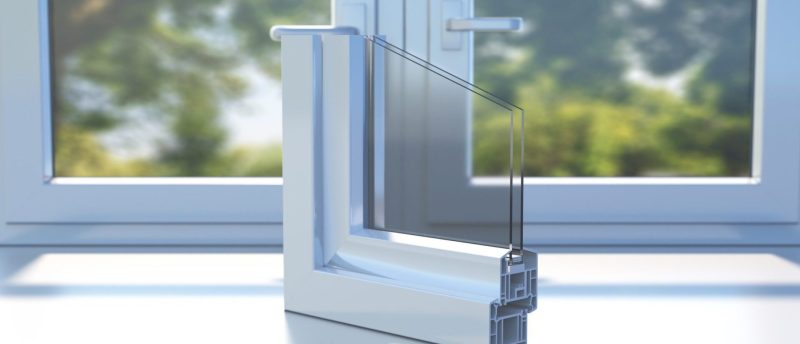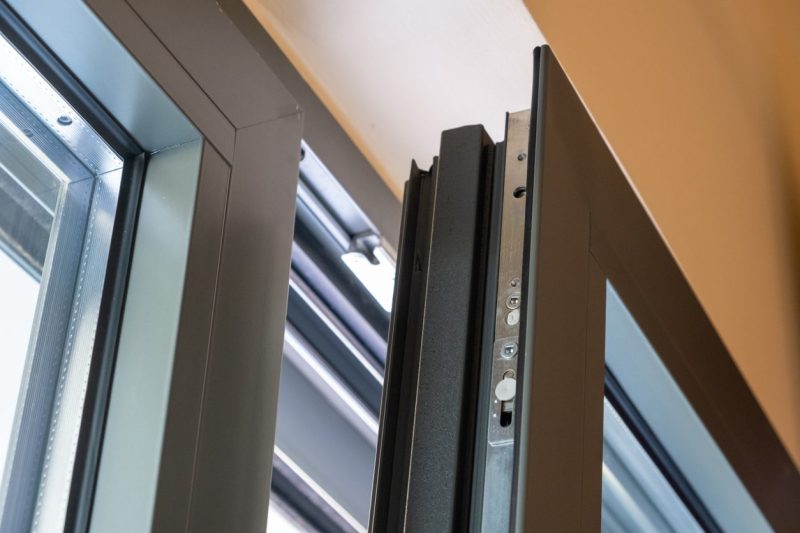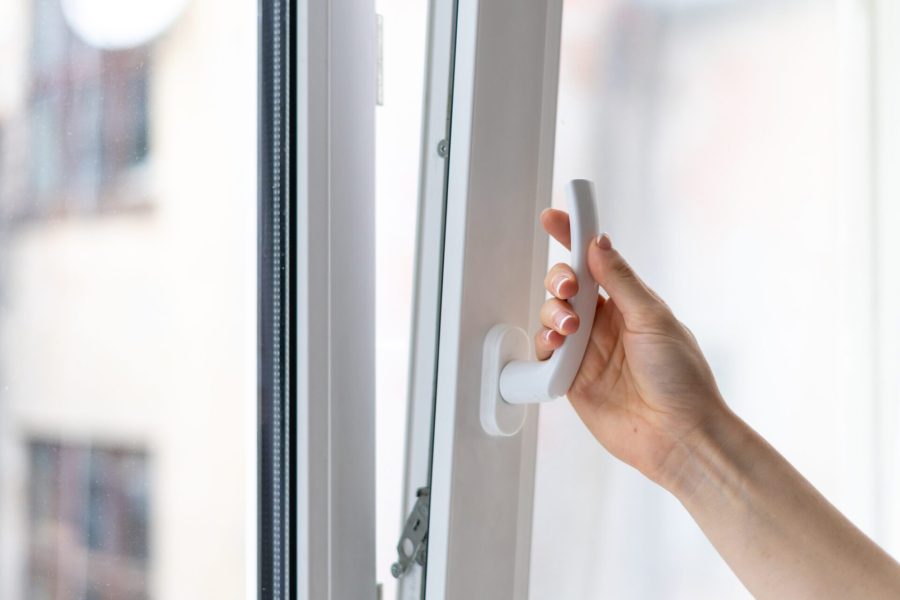In recent years technology for manufacturing has advanced significantly, meaning that updated and longer lasting products are being developed all the time. Homes that are constructed today are far superior to those that were built post-war. Double glazing windows today have hugely improved thermal performance and longevity.
A double glazed window made today will typically have a lifetime of 25-30 years, and possibly more if they are installed in a sheltered location that is not subjected to extreme weather. Double glazed windows that are more exposed and regularly encounter weather can expect a lifespan of around 20 years. The longevity of your windows and how long your double glazing should last depend on various factors, we have already mentioned the environment and weather but there is also the quality of the windows, the quality of the installation, and how well looked after they are.
How long should double glazed sealed units last?
The robustness of your double glazed windows is largely based on the quality of the sealed unit. The quality and material of your frame are still important, but if your sealed unit fails then you will lose all of the double glazing insulation properties of the window. The majority of manufacturers guarantee and offer a warranty for the double glazed unit. Typically, a minimum of 20 years lifespan is considered from double glazed units, but 30 years or more is what is expected (when installed in a sheltered location).

How long do windows last?
As previously mentioned, some factors can double or half the lifespan of your double glazing and windows, the main one being temperature. All windows are designed to withstand heavy rain, but some window frame materials find it difficult to handle the extremes of temperature as these make them expand and contract. The insulating Argon gas between the panes of glass within the double glazed sealed unit reacts to alterations in temperature by expanding and contracting. This is known as thermal pumping and windows that are south facing in direct sunlight are most vulnerable to it.
Thermal pumping places stress on the seals of the double glazed unit as it consistently expands and contracts. The seals begin to show small fractures that increase in size over time and airflow is pulled in and pushed out through the cracks as the gas expands and contracts. This is where you will see that the double glazed unit is compromised and starts failing.
What factors can impact the lifespan of double glazed windows?
Location
Covered or exposed home positions will make the biggest difference to how long your windows will last. A window on a coastal property for example, will have a substantially shorter lifespan as a result of acidic saltwater compared to a window in the countryside that does not experience this.
Quality of manufacture
Windows that are produced by reputable manufacturers and craftsmen will last much longer than anything that has been cheaply made to cut costs.
Quality of installation
The quality of your window is dependent on it being fitted correctly by a professional and experienced installer. It will only last to its maximum potential lifetime if it sits correctly in the opening without any gaps and all completely sealed. Windows that have been badly fitted will allow water to get between the brick and the frame, leading to endless damp problems and can rot a timber frame underneath.
How long do uPVC windows last?
uPVC has become the most popular choice for double glazed windows in the UK due to them being low maintenance, energy efficient, and impressively secure. It is a durable material, but white uPVC can get stained if it is not cleaned properly. Also, keep in mind that cheap uPVC is a false investment as it will likely warp and discolour over time and won’t last as long as a reputable window and double glazing brand. Investing a bit more money in your double glazing windows at the beginning can make a difference of an additional 10-15 years in the long run. uPVC double glazed windows are estimated to last from about 20-25 years.
How long do aluminium windows last?
The most modern and new on the market, aluminium windows have stylish durable frames that provide a contemporary style and can support larger areas of glass. The frame is extremely strong (hence why they are used for big floor to ceiling windows and doors) and has a high-quality multi-point locking system for security. Aluminium is an incredibly durable metal that can last a long time with minimal maintenance needed, making it a great investment for new double glazing windows. Aluminium windows are predicted to last for up to 45 years.
How long do timber windows last?
Homes in conservation areas and listed buildings are normally bound to replace timber windows with the same material rather than changing to aluminium or uPVC but the outcome is a beautiful aesthetic. A lot of period property owners also select timber windows to maintain the integrity of the house. Timber is a high maintenance material and does require consistent attention to ensure longevity, but you will benefit from an extended lifespan. Well-maintained timber windows can last up to 50 years or more.

How will you know when you need to replace your double glazing?
Energy efficient double glazed windows are a key structural part of a home that significantly contributes to lowering your carbon footprint, your energy bills and keeping your home warm. To be sure that you are not paying more than you should on your energy bills, it is important that your windows keep performing as they should.
If you have noticed your heating bills going up unexpectedly, it could be that your double glazing is starting to fail. You will know if it is time to replace your double glazing if you see any of the following signs.
You can feel draughts coming in around the frame
If you run your hand around the frame of your window and it feels draughty and cold, either the seals surrounding the frame or the seals in the double glazed unit might have failed. If the unit fails, the Argon gas that is insulating the panes of glass dissipates and this will lead to a decrease in U values.
There is condensation in-between the panes, inside the double glazed unit
Desiccant (normally silica gel) is used inside the spacer bar of the sealed unit to take in the natural moisture that develops between the panes keeping the unit free of fog. If the seal unit starts to fail, more moisture is pulled into the unit by thermal pumping and saturates the silica gel. This is where fog and condensation start to form in-between the glass panes as the first sign that your sealed unit has failed.
Keep in mind that condensation only develops on glass in direct sunlight, so a window that is facing north may have failed seals but won’t show condensation. In some cases, you can only tell a seal has failed by inspecting it or testing with a thermal camera. Also, it is important to remember that not all windows fail because of thermal pumping. Seals that were incorrectly fitted during the manufacturing process and bad batches of windows can generate failed units. For this reason, it is key that you only buy double glazing from reputable suppliers who guarantee their units.
There is white dust inside the double glazed unit between the panes
As soon as the desiccant becomes saturated, it begins to degrade, and particles start to drift around the sealed unit. White snowflakes of dust settle on the inside of the glass panes. This is a clear sign that your double glazed unit is compromised and has failed.
You can hear a lot of outside noise
Double glazing works as an insulation against cold temperature and sound. When you have your windows closed, outside noise should be reduced and muffled. If you think you can hear more outside noise than normal, the Argon gas may have escaped from the sealed unit reducing your insulation.
The windows won’t open or close properly
If the window is not closing as it should, this means the seals are not contacting and the insulation of the frame has been compromised. This can be the result of using cheap uPVC as your window material. The first thing to try to fix this problem is adjusting the hinges of the window, if this doesn’t work then the frame could have reached the end of its life.
The frames have visibly degraded – yellowing uPVC or cracked timber
The double glazed sealed unit may be an integral part of the window but the frame is also a vital part that supports the unit. Wooden frames that are rotten and cracked cannot be fixed and uPVC that is yellowing or warped can’t be salvaged. Always check your manufacturer’s warranty, if they have failed within warranty you can get your windows repaired or replaced.
How wear and tear affects double glazing units?
Over time double glazed windows may suffer some wear and tear as well as various kinds of minor damages like the insulated glazing unit starting to leak gradually. Studies from the Centre for Sustainable Energy show that when around 25% of all the gas has evaporated, the window’s thermal performance is reduced. It is at this point that it could be necessary to consider replacing the windows completely. An alternative option would be to install secondary glazing.
Certainly, the ravages of time will eventually take a toll on double glazed windows as well. A common way this can happen is when big temperature differences between the inside and outside surfaces of the DGU stresses the spacer adhesives, which can lead it to fail. When the gap between the panes of glass within a DGU is smaller, it is more vulnerable to this type of issue. In these cases, you should think about having your unit serviced, but if it is more severe, you might need to replace the unit entirely.
How to choose the best double glazed windows
Choosing replacement windows for your home can be a difficult process, you need to consider a range of factors. Some of these factors include:
- Type of glass
- Style of your property
- The window frame material
- When you are looking for new windows for your property, here are some things to think about:
- Low-E (low emissivity) glass
Typically, this kind of glass includes an invisible metal oxide coating on one of the glass’ internal panes that is next to the gap. A big benefit of this type of glass is its capability to allow in light but also reduce heat loss. As well as this, the gap between the two glass panes in each double glazing is usually filled with a non-toxic and inert gas.
It is important to note here that this gas tends to have a greater density than air, meaning it is able to effectively reduce heat loss from your home. As previously mentioned, the most commonly used gas is Argon. This is because it is not only colourless but also is highly cost-effective, it doesn’t react with other gases, and it is non-flammable.
Energy efficiency rating
In order to help homeowners make the best decision when it comes to selecting new windows, the BFRC (British Fenestration Rating Council) produced a rating scheme using a scale from A+ to G. It is similar to those used for fridges and washing machines. When coming up with the energy rating, the entire window must be taken into account, this includes both the glass and the frame.
High quality double glazing that has been properly manufactured and installed and given suitable maintenance should certainly last two decades or more. Also, using a trustworthy company with excellent service to purchase your new double glazed windows like Clydebuilt Home Improvements, should give you complete peace of mind with a warranty that will cover your investment for a decent part of your windows estimated lifespan.
 " alt="How Long Does Double Glazing Last?">
" alt="How Long Does Double Glazing Last?">